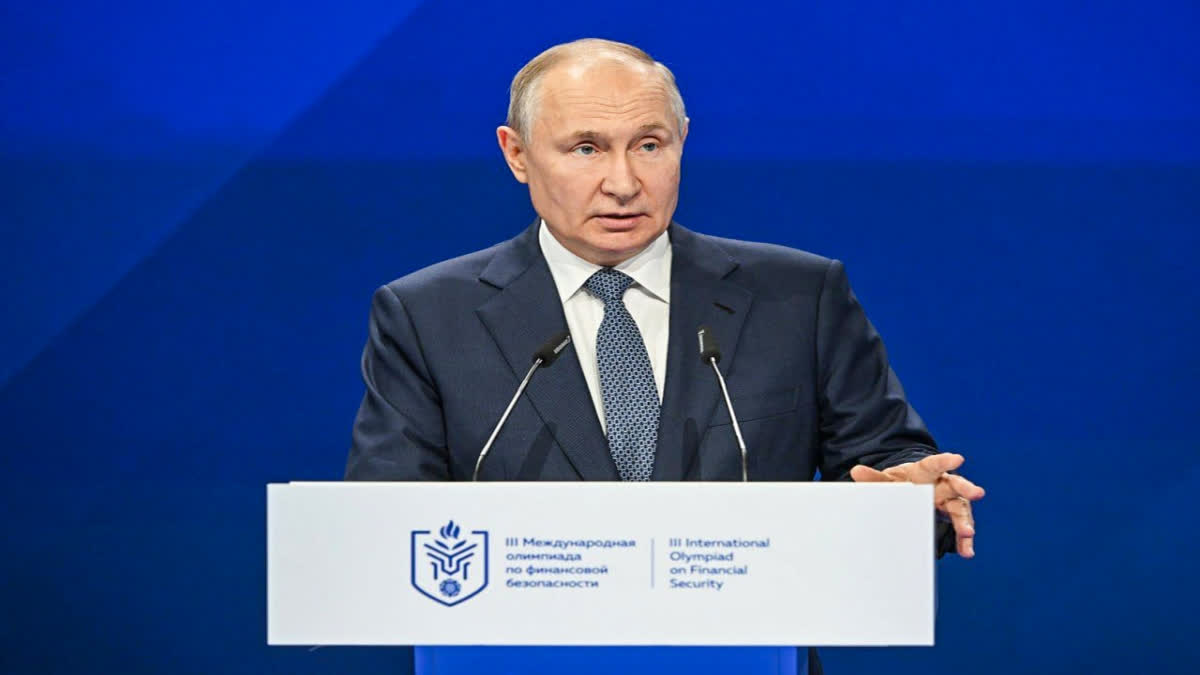Russian President Vladimir Putin's visit to China, the 'No-limit' friend, has certainly raised some eyebrows in the power centres of the Western world. Expectedly, Jim Kirby, the National Security Advisor (NSA) in the White House has doubted the recent bonhomie between the two neighbours and predicted that their newly acquired friendship will not last long as "Russia and China, both don't have a long history trusting each other".
Putin's state visit to China, which ended on May 16, was to celebrate 75 years of diplomatic ties between the two neighbours. Talking to the media on that day at the Russia-China Expo in Harbin, Heilongjiang province, Putin termed his discussions with his Chinese counterpart Xi Jin Ping as substantive and expressed satisfaction over the growing bilateral trade.
It is to be noted that the trade has gone up by 26.3 per cent to US$240 billion in 2023 and it is substantially in favour of Russia which supplies almost half of the crude needed by China. Russia is a huge producer of crude but has only a few takers due to the severe sanctions imposed by the West and the disruption of the supply lines. The two biggest importers of Russian crude are China and India whose purchase of crude almost offsets the cost of Russian operation in Ukraine.
Speaking in Harbin, Putin tried to convince the world that the partnership between Russia and China is aimed at "creating better conditions for the development of our countries and improving the well-being of the people of China and Russia". In a veiled attack on the Western world, the visiting dignitary claimed that "the emerging multi-polar world is taking shape before our eyes and those who are trying to maintain their monopoly on decision making in the world on all issues….do everything in their power to ensure that this process goes on".
At the end of the talks, a Joint Statement spanned in fourteen paragraphs was signed by the two leaders on deepening the "Comprehensive Strategic Partnership of Cooperation for the New Era". This tries to clarify that the Sino-Russian bilateral relations "has the nature of no alliance, no confrontation and not targeting any third party" though many third parties are mentioned in the latter paragraphs.
On one hand, the statement claims that different countries have the right to choose their own different paths owing to their different histories, cultures and national conditions and that "there is no such thing like a superior democracy" (taking a clear jib to the USA), on the other hand, Russia recognises, obviously in order to please China, Taiwan as an inalienable part of Chinese territory and opposes any form of "Taiwan independence". Building closer partnerships for energy, jointly safeguarding international energy security (to ensure uninterrupted supply to China and to avoid Nord Stream Pipeline for which impartial investigation was also called for), and urging NATO to abide by its commitment are other prominent features of the statement.
It expressed "serious concerns" on many issues like on "biological military activities of the USA" (perhaps an attempt to counter the charges levelled against China for deliberately spreading COVID), NATO's eastward expansion (to retain the Russian perspective also), AUKUS (a threat to both), Japan's plan to discharge the nuclear-contaminated water in its sea and requested the USA to respond to the 'legitimate and reasonable concerns' of the North Korea. Thus, the statement criticises all the adversaries of the signatories. However, the statement was surprisingly mum on QUAD. Though it mentioned, the US, NATO, Japan, DPRK, UK, and Australia (in AUKUS), mention of India was carefully avoided.
